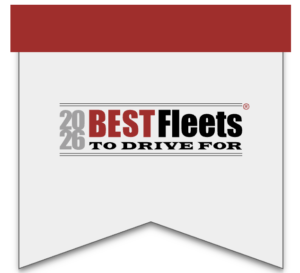STUTTGART, Germany — Daimler on Feb. 3 announced plans to split its passenger car and commercial truck/bus segments into two independent “pure-play” companies. An announcement from Daimler calls the split a “fundamental change” in the company’s structure, adding that the division will “unlock the full potential of its businesses in a zero-emissions, software-driven future.”
A significant majority stake in Daimler Truck will be distributed to Daimler shareholders. The truck business will operate under fully independent management and have stand-alone corporate governance including an independent chairman of the supervisory board, and is targeted to qualify as a DAX company.
The passenger-car segment will be renamed as Mercedes-Benz “at the appropriate time,” the announcement notes.
“This is a historic moment for Daimler. It represents the start of a profound reshaping of the company. Mercedes-Benz Cars & Vans and Daimler Trucks & Buses are different businesses with specific customer groups, technology paths and capital needs,” said Ola Källenius, chairman of the board of management of Daimler and Mercedes-Benz.
“Daimler Truck supplies industry-leading transportation solutions and services to customers,” Källenius noted, adding that both the car and commercial truck industries are on the brink of “major” changes. “Given this context, we believe they will be able to operate most effectively as independent entities, equipped with strong net liquidity and free from the constraints of a conglomerate structure,” said.
As part of a more focused corporate structure, both Daimler Truck and Mercedes-Benz will also be supported by dedicated captive financial and mobility service entities, driving sales with tailor-made financing, leasing and mobility solutions. In this process, the company plans to assign resources and teams from today’s Daimler Mobility to both Daimler Truck and Mercedes-Benz.
“We have confidence in the financial and operational strength of our two vehicle divisions. And we are convinced that independent management and governance will allow them to operate even faster, invest more ambitiously, target growth and cooperation, and thus be significantly more agile and competitive,” Källenius said.
According to the company’s Feb. 3 statement, Daimler Truck intends to generate value for its shareholders by accelerating the execution of its strategic plans, raising its profitability and driving forward with the development of emissions-free technologies for trucks and buses.
“This is a pivotal moment for Daimler Truck. With independence comes greater opportunity, greater visibility and transparency,” said Martin Daum, member of the board of management of Daimler and chairman of the board of management of Daimler Truck. “We will grow further and continue our leadership in alternative powertrains and automation. We have already defined the future of our business with battery-electric and fuel-cell trucks, as well as strong positions in autonomous driving. With targeted partnerships we will accelerate the development of key technologies to bring best-in-class products to our customers rapidly.”
Daum also stated that Daimler truck has a solid financial base and a “robust” business model.
“We will continue to work on our cash-flow management, and we know how to deal with industry market cycles — we have proven that again in the significant COVID-related global market reduction,” he continued. “We have clear strategies to raise our financial performance and accelerate our execution. We will use our strong and well-known global brands, our scale and our exceptional technology to deliver industry-leading returns.”
The intended structure of the transaction would involve Daimler transferring the majority of Daimler Truck to its shareholders on a pro rata basis in accordance with existing shareholdings, but it intends to retain a minority shareholding. Representation of Daimler in the Daimler Truck Supervisory Board will be in line with the intended deconsolidation, according to Daimler’s Feb. 3 statement.
Further details of the intended spin-off are expected be presented to company shareholders at an extra-ordinary shareholder meeting during the third quarter of 2021, to obtain their mandatory approval to the plan. A company presentation of the restructuring plan is available here.
The Trucker News Staff produces engaging content for not only TheTrucker.com, but also The Trucker Newspaper, which has been serving the trucking industry for more than 30 years. With a focus on drivers, the Trucker News Staff aims to provide relevant, objective content pertaining to the trucking segment of the transportation industry. The Trucker News Staff is based in Little Rock, Arkansas.











